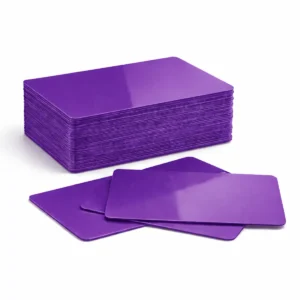Mifare
MIFARE is a globally recognized brand under NXP Semiconductors, known for its leading-edge contactless smart card technologies used in a variety of applications, primarily for public transportation, access management, and electronic payment systems. Introduced in the mid-1990s, MIFARE products have been consistently at the forefront of RFID and NFC technology, offering versatile solutions that enhance user convenience and system security.
Product Range – MIFARE’s product line includes several chip technologies, such as MIFARE Classic, MIFARE DESFire, MIFARE Plus, and MIFARE Ultralight, each tailored for specific requirements. These products offer varying levels of memory storage, security features, and capabilities, enabling them to cater to a broad spectrum of applications from simple identification badges to complex transit fare collection systems.
Innovation and Flexibility – MIFARE’s state-of-the-art RFID and NFC technologies allow for contactless interaction that can greatly streamline processes while ensuring secure data transactions. The flexibility of MIFARE chips enables them to be embedded into cards, fobs, wristbands, and other forms suitable for a multitude of uses.
Global Impact – With over 50 billion devices sold worldwide, MIFARE’s technologies facilitate seamless and efficient operations across various sectors globally. Its widespread adoption underscores its reliability and the trust that industries place in its technology to deliver secure and rapid transactions.
Ease of Integration – MIFARE products are designed with compatibility in mind, offering easy integration into existing systems with minimal disruption. This ease of integration, combined with the support provided by NXP Semiconductors, makes MIFARE a preferred choice for developing smart, user-centric solutions.
Security at Its Core – MIFARE’s emphasis on security is evident in features like AES encryption available in products like MIFARE DESFire, which are designed to thwart fraud and unauthorized access, ensuring that all data stored and transmitted is well-protected.
By incorporating MIFARE technologies into your systems, you are choosing advanced, secure, and versatile solutions that have been trusted for decades. Whether you’re looking to enhance your access control systems, upgrade your ticketing operations, or implement new payment solutions, MIFARE offers the reliability and innovation that can propel your services to the next level.

Showing all 12 resultsSorted by popularity
Showing all 12 resultsSorted by popularity
Why MIFARE®
MIFARE® are the leading brand and most trusted choice for contactless ID and access products such as blank smart cards.
Our range of NXP card options can be programmed to a variety of applications such as cashless payments, transportation, and access control. Our range of MIFARE cards includes MIFARE Classic® cards, MIFARE® DESFire ®, Ultralight and MIFARE Plus formats, all great choices for your access control system.
Our top recommendations are the best-selling genuine MIFARE Classic 1K EV1 cards and MIFARE Classic 4K cards which are both popular choices for educational establishments and private organisations. The MIFARE DESFire 4K EV2 cards are also popular options, ideal for those requiring faster speeds.
All high-frequency MIFARE cards can be customised with any retransfer ID card printer to display your company logo and branding.
To see all available options, you can browse our complete access control product range here.
(Please note MIFARE® is a registered trademark owned by NXP B.V.)
Frequently Asked Questions
Q: What frequency is MIFARE?
A: MIFARE operates at a frequency of 13.56 MHz.
Q: Is MIFARE NFC or RFID?
A: MIFARE products use RFID, with MIFARE integrated circuit (IC) chips used in more than 1 billion RFID transponders. These chips are compliant with ISO/IEC 14443 Type A standards, which are widely used in contactless cards.
Q: How secure is MIFARE?
A: The MIFARE product family consists of various different families, including the high-security MIFARE DESFire and MIFARE Plus. The MIFARE DESFire range offers some of the most secure access control cards on the market, containing practically unbreakable 128-bit encryptions.














